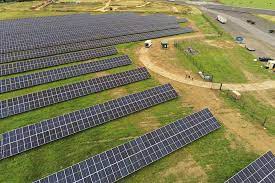Who are these so called experts? What is there expertise in, and do other experts agree? Their expertise does not appear to have much backing it.
This engine weighs just under 11kg, and they believe that, as it delivers better efficiency and emission control, all within a sleek design. In the literature, so much is made of the efficiency of this engine, but that misses the point. They suggest that this efficiency closes the gap between combustion engines and electric ones.
This misses the point: electric cars are zero carbon at use. Therefore, the cleaner the grid gets, the lower the carbon will be. As such, it is all very well to compare electric cars now, to an experimental engine that will be in cars in a generation or two. However, in 2 generations, it is thought that most countries will have further greened their grid, leaving the electric car still ahead.
We drive an electric car, and as we pay our electricity company for 100% clean electricity, our carbon emissions are essentially zero (particularly, as we bought the car second hand). One could, quite rightly, argue that not all the electricity that we use comes from zero carbon electricity – instead, we use whatever electricity is being created at the time. But that is the point- our supplier buys enough zero carbon electricity to cover all our use, therefore, if they were supplying everyone in the country a 100% zero carbon electricity, they would have to buy enough green electricity for everyone. That could only be done by all the electricity in the country being green.
So, in short – suggesting an uber efficient small ICE engine used 10-20 years in the future is more efficient than an electric car driven on the grid now, is not a fair comparison. It is like comparing the price of apples now, to the price of futures in oranges next year. Do not buy into it. If every person in the UK drove an electric car, carbon emissions would be far lower, than if everyone drove the most efficient ICE car that has, or ever will be made (this seems pretty obvious, do not get hoodwinked).
Continue reading “So-called experts are claiming that the first ultra-compact engine which has just been unveiled, will be the end of EVsTransport roundup: cleaner cars and planes”











